October 21 to October 29 - abbey
Main menu:
- Home Page
- Abbey
- Apiary
- Documents
- Monastic
- Spirituality
- Apostleship of the Sea
- Homilies of Pope Francis
October 21 to October 29
Greed destroys people, families
Greed, attachment to money, destroys people, destroys families and relationships with others: That was Pope Francis’ message during Mass on Monday, October 21. The invitation is not to choose poverty per se, but to use the wealth that God gives us to help those in need. Commenting on the day’s Gospel, in which a man asks Jesus to intervene to resolve a problem of inheritance with his brother, the Pope spoke about the problem of our relationship with money: This is a day-
Commenting on the day’s Gospel, in which a man asks Jesus to intervene to resolve a problem of inheritance with his brother, the Pope spoke about the problem of our relationship with money: This is a day-
Jesus tells the parable of the rich man who lives to gather treasures for himself but is not rich in what matters to God. Jesus’ warning is to stay away from any kind of greed: That’s what does harm: greed in my relationship with money. Having more, having more, having more... It leads you to idolatry, it destroys your relationship with others. It’s not money, but the attitude, what we call greed. Then too this greed makes you sick, because it makes you think of everything in terms of money. It destroys you, it makes you sick. And in the end – this is the most important thing – greed is an instrument of idolatry because it goes along a way contrary to what God has done for us. St. Paul tells us that Jesus Christ, who was rich, made Himself poor to enrich us. That is the path of God: humility, to lower oneself in order to serve. Greed, on the other hand, takes us on a contrary path: You, who are a poor human, make yourself God for vanity’s sake. It is idolatry!”
This is the reason, why Jesus says things so hard, so strong against this attachment to money. He tells us that you can’t serve two masters: both God and money. He tells us not to worry, that God knows what we need and He invites us to trusting abandonment to the Father, who makes the lilies of the field flower, and feeds the birds. The rich man of the parable continues to think only of his riches, but God says to him: You fool, this night your life will be demanded of you! This path is contrary to the path of God,” the Pope concluded. “It is foolishness, it takes you far from life, it destroys all human fraternity. The Lord teaches us the path: not the path of poverty for poverty’s sake. No! It is the way of poverty as an instrument, so that God may be God, so that He will be the only Lord! Not the golden idols! And all the goods that we have, the Lord gives them to us to advance the world, to advance humanity, to help, to help others. Today may the Word of the Lord remain in our hearts: Take care to guard against all greed, for though one may be rich, one’s life does not consist of possessions.
The Lord teaches us the path: not the path of poverty for poverty’s sake. No! It is the way of poverty as an instrument, so that God may be God, so that He will be the only Lord! Not the golden idols! And all the goods that we have, the Lord gives them to us to advance the world, to advance humanity, to help, to help others. Today may the Word of the Lord remain in our hearts: Take care to guard against all greed, for though one may be rich, one’s life does not consist of possessions.
God does not save us by a decree, He mingles with us to heal our wounds
Contemplation, proximity and abundance are the three words upon which Pope Francis centered his homily on Tuesday, October 22. Speaking to those present for the morning celebration, the Pope reiterated that one cannot understand God solely with the mind and pointed out that God challenges us by "mingling" in our lives to heal our wounds, just as Jesus did. Intelligence – the Pope said – is not sufficient to enter into the mystery of God. You need contemplation, proximity and abundance.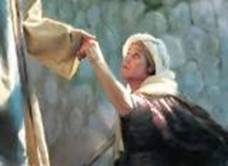 Drawing his inspiration from the Letter of St. Paul to the Romans, Pope Francis said there is only one way we can understand they the mystery of our salvation, and that is: on our knees, in contemplation. Intelligence is not enough. You need contemplation, intelligence, heart, knees praying… all together: this is how we enter into the mystery. When the Church wants to describe the mystery of God the word used is ‘wonderful/ marvellous. It is a marvellous mystery. When ‘intelligence’ wants to explain a mystery, always.. always!.. It gets crazy! And so it happened in the history of the Church. The contemplation: intelligence, heart, knees, praying ... all together, enter into the mystery. That's the first word that perhaps will help us.
Drawing his inspiration from the Letter of St. Paul to the Romans, Pope Francis said there is only one way we can understand they the mystery of our salvation, and that is: on our knees, in contemplation. Intelligence is not enough. You need contemplation, intelligence, heart, knees praying… all together: this is how we enter into the mystery. When the Church wants to describe the mystery of God the word used is ‘wonderful/ marvellous. It is a marvellous mystery. When ‘intelligence’ wants to explain a mystery, always.. always!.. It gets crazy! And so it happened in the history of the Church. The contemplation: intelligence, heart, knees, praying ... all together, enter into the mystery. That's the first word that perhaps will help us.
The second word that will help us enter the mystery. i.e. Closeness – or Proximity. One man created sin(Adam), and one man saved us(Jesus). God is close…, he is close to our history. From the very first moment when he chose our father, Abraham, he walked with His people. And Jesus himself worked as an artisan, a worker. The image that comes to mind, is that of a nurse in a hospital who heals our wounds, with her own hands, one at a time. Just like God who gets involved, who mingles in our miseries, He gets close to our wounds and heals them with his hands. And to actually have hands He became man. This was the personal work of Jesus. One man sinned… another man came to heal... So God saves us not only by decree: “He saves us with tenderness and with caresses. He saves us with His life for us.”
Third word is ‘abundance’. Where sin abounds, grace superabounds. Each of us knows his miseries and knows how they abound. But God challenges us to defeat them and heal the wounds as Jesus did with His superabundance of grace and love. That is the way it is… you know that preference of Jesus for sinners. In the heart of these people sin abounds. But He came to them with the superabundance of grace and love. The grace of God always wins, because it is He who offers himself, who draws closer, who caresses us, to heal us. Although some do not like to admit it: those who are closest to the heart of Jesus are sinners, because He goes to look for them, calls them and says “come…come..” and when they ask for an explanation, he says “But, ..those who are in good health do not need a doctor, I have come to heal, to save."
Some saints say that one of the ugliest sins is distrust: distrust in God. But how can we be wary of a God who is so close, so good, who prefers the sinful heart? This mystery is not easy to understand with intelligence, but with the help of these three words: ‘contemplation, proximity and abundance’ because God always wins with the superabundance of his grace, with His tenderness, with His wealth of mercy.
We are made new in Christ
Pope Francis focused on the ‘universal call to holiness’, in his homily at Mass on Thursday, October 24. He said “We have been re-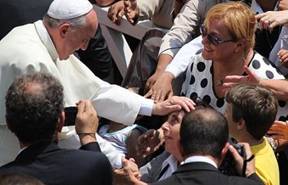 We must make this faith our own and let it be the lode star of our lives. To live as Christians, he said, is to bring forth this faith in Christ, this re-
We must make this faith our own and let it be the lode star of our lives. To live as Christians, he said, is to bring forth this faith in Christ, this re-
Really we are weak and many times, many times, we commit sins, imperfections -
Before the Act of Faith, prior to acceptance of Jesus Christ, who has created us anew with His own blood, we were on the road of injustice. After Baptism and the Act of Faith, however, we are on the path of sanctification, but we must take it seriously! To take it seriously, we must do works of righteousness, ‘simple’ works: Worship God, God is always first! And then do what Jesus advises us: to help others. These and similar works are the works that Jesus did in his life: the works of justice, works of re-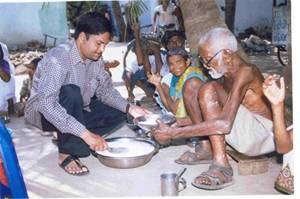 Without this awareness of the before and after of which Paul speaks to us, our Christianity does not help anyone! More to this: it takes us on the road of hypocrisy. ‘I call myself a Christian, but live like a pagan!’ Sometimes we say ‘Christians at half-
Without this awareness of the before and after of which Paul speaks to us, our Christianity does not help anyone! More to this: it takes us on the road of hypocrisy. ‘I call myself a Christian, but live like a pagan!’ Sometimes we say ‘Christians at half-
This, was Paul's passion and that is the passion of a Christian! We must, let go of everything that takes us away from Jesus Christ, and make all things anew: everything is new in Christ! You can do it! as did St. Paul and also many Christians… Not only the saints we know -
Confess sins with concreteness and sincerity
“To have the courage in the presence of the confessor to call sin by its name, without hiding it”: Pope Francis homily Friday, October 25, was focused entirely on the Sacrament of Reconciliation. To go to Confession, he said, is to encounter the love of Jesus with sincerity of heart and with the transparency of children, not refusing, but even welcoming the “grace of shame” that makes us perceive God’s forgiveness.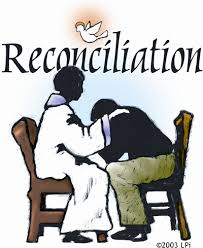 “For many believing adults, confessing to a priest is an unbearable effort – that often leads one to avoid the Sacrament – or such a painful process that it transforms the moment of truth into an exercise of fiction.” Pope Francis, commenting on the Letter to the Romans, said “Saint Paul does exactly the opposite: he admits publically to the community that “good does not dwell in me, that is, in my flesh.” He acknowledges that he is a “slave” who does not do the good that he wants to do, but does the evil that he does not want to do. This happens in the life of faith, that “when I want to do good, evil is close to me”
“For many believing adults, confessing to a priest is an unbearable effort – that often leads one to avoid the Sacrament – or such a painful process that it transforms the moment of truth into an exercise of fiction.” Pope Francis, commenting on the Letter to the Romans, said “Saint Paul does exactly the opposite: he admits publically to the community that “good does not dwell in me, that is, in my flesh.” He acknowledges that he is a “slave” who does not do the good that he wants to do, but does the evil that he does not want to do. This happens in the life of faith, that “when I want to do good, evil is close to me”
This is the struggle of Christians. It is our struggle every day. And we do not always have the courage to speak as Paul spoke about this struggle. We always seek a way of justification: ‘But yes, we are all sinners.’ But we say it like that, don’t we? This says it dramatically: it is our struggle. And if we don’t recognize this, we will never be able to have God’s forgiveness. Because, if being a sinner is a word, a way of speaking, a manner of speaking, we have no need of God’s forgiveness.. But if it is a reality that makes us slaves, we need this interior liberation of the Lord, of that force. But more important here is that, to find the way out, Paul confesses his sin to the community, his tendency to sin. He doesn’t hide it.
Confession of sins, done with humility, is something the Church requires of all of us. Saint James invites us: Confess your sins to one another. Not to get noticed by others, but to give glory to God, to recognise that it is God Who saves me. That is why one goes to a brother, a ‘brother priest’ to confess. And one must do as Paul did – above all, confessing with the same ‘concreteness’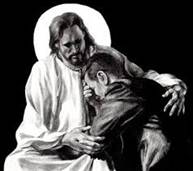 Some say: “Ah, I confess to God”, But it’s easy, it’s like confessing by email, no? God is far away, I say things and there’s no face-
Some say: “Ah, I confess to God”, But it’s easy, it’s like confessing by email, no? God is far away, I say things and there’s no face-
Concreteness and honesty, and a sincere ability to be ashamed of one’s mistakes… There are no shadowy lanes that can serve as an alternative to the open road that leads to God’s forgiveness, to the awareness, in the depths of the heart, of His forgiveness and His love. Little children have that wisdom: when a child comes to confess, he never says something general. ‘But father, I did this and I did that to my aunt, another time I said this word’ and they say the word. But they are concrete, eh? They have that simplicity of the truth. And we always have the tendency to hide the reality of our failings. But there is something beautiful: when we confess our sins as they are in the presence of God, we always feel that grace of shame. Being ashamed in the sight of God is a grace. It is a grace: ‘I am ashamed of myself.’ We think of Peter when, after the miracle of Jesus on the lake, [he said] ‘Depart from me, Lord, for I am a sinner.’ He is ashamed of his sins in the presence of the sanctity of Jesus.”
Jesus continues to pray and intercede for us
At the centre of Pope Francis’ homily on Monday, October 28, morning was the passage from the Gospel of Luke during which Jesus remained in prayer throughout the whole night before choosing the twelve apostles, and he pointed out that Jesus continues to pray and to intercede for us. The Pope said that by praying to God to choose his apostles, Jesus was “putting his team together” – and afterwards a great number of people came to be with Him and to be healed by Him, because “power was coming Him and healing them all”. Jesus had three different rapports: “Jesus and the Father, Jesus and his Apostles, Jesus and the people. Jesus prayed to the Father for the Apostles and for the people”.: he is still praying.
The Pope said that by praying to God to choose his apostles, Jesus was “putting his team together” – and afterwards a great number of people came to be with Him and to be healed by Him, because “power was coming Him and healing them all”. Jesus had three different rapports: “Jesus and the Father, Jesus and his Apostles, Jesus and the people. Jesus prayed to the Father for the Apostles and for the people”.: he is still praying.
Jesus has saved us, with his prayers, with his sacrifice, with his life. He is gone now and he continues to pray, but does that mean that Jesus is a spirit? Jesus is not a spirit! He is a person, a man with flesh like our flesh, but in the glory of God. Jesus has wounds on his hands, on his feet and on his side. And when he prays he shows the Father the price of our salvation. It is as if he is saying: Father, may this not be lost!”
So prayer stems from Jesus who prays and intercede for us. "There was a time when he redeemed us, he justified them all, but now, what does He do? He intercedes, prays for us. I wonder what would have Peter felt when he denied him, and then Jesus looked at him and he wept. He felt what Jesus said was true: he had prayed for him, and for this reason he could cry, could repent. Many times, among us, we say: 'But , pray for me , huh?, I need it, I have so many problems, many things: Pray for me.' And that's good, huh? because we brothers.. we should pray for one another."
There fore ask the Lord "Pray for me, O Lord, Thou art the intercessor" He prays for me, He prays for all of us and prays to the Father bravely because it shows the price of our justice: his wounds. Let these be our thoughts, and we thank the Lord. Thank the Lord, for having a brother who prays with us, and prays for us, intercedes for us. And we talk with Jesus, let us tell him: 'Lord, You are the intercessor you saved me, I 'm justified. But now, pray for me.' And entrust our problems, our life, so many things to Him, so that He takes them to the Father.
Hope is an anchoring of the heart with an ardent expectation of the revelation
Hope is not optimism, but "an ardent expectation" to the revelation of the Son of God as pointed out by Francis Pope at Mass Tuesday October 29. The Pope said that Christians must guard against clericalism and comfortable attitudes, because Christian hope is dynamic and life-
“What is ‘hope’ for a Christian?” Pope Francis was inspired by the words of St. Paul, in the first reading, to highlight the unique dimension of Christian hope. Don’t treat it as optimism, but "an ardent expectation" reaching out to the revelation of the Son of God. The creation was subjected to transience and the Christian therefore lives the tension between hope and slavery. Hope does not disappoint, it is safe. However, it is not easy to understand hope. Sometimes, we think to be ‘people of hope’ is like being ‘optimistic people’. But it is not…
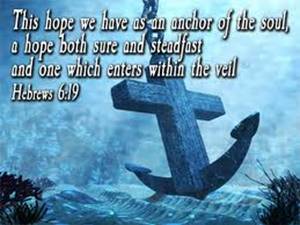
Hope is not optimism, it is not that ability to look at things with good cheer and move on. No, that's optimism, it is not hope. Neither is hope a positive attitude in front of things. Those people are bright, positive ... But this is good, eh! But it is not hope. It is not easy to understand what is hope. They says it is the most humble of the three virtues, because it is hidden in life. Faith is seen, is felt, you know what it is. Charity is what you do, so you know what it is. But what is the hope? What is this attitude of hope? To examine it closely, we can say first of all that hope is a risk, a risky virtue, it is a virtue, as St. Paul says 'an ardent expectation towards the revelation of the Son of God.' It is not an illusion.
To have hope is precisely this: "being in tension, looking forward to this revelation, to this joy that fills our lips with smiles. St. Paul said again, that hope is not optimism, it is more, it is something different. The early Christians, painted it as an anchor: hope was an anchor, anchor fixed on the shore of the afterlife. And our life is just walking towards this anchor.
The question arises, where have we anchored ourselves, each one of us? Are we anchored right there on the shore of that ocean so far or are we anchored in an artificial lagoon that we ourselves have made, with our rules, our behavior, our schedules, our clericalism, our ecclesiastical and non-
St. Paul, then indicates another icon of hope, that of childbirth. "We are waiting, this is an act of giving birth. And hope has these dynamics, to give life. But, the first fruits of the Spirit can not be seen. Yet I know that the Spirit works. He works in us like a small grain of mustard, but it is full of life within, strength, which advances finally to become tree. The Spirit works like yeast. So, the Spirit works : you do not see it, but it is there. It is a grace to be asked.
One thing is to live in hope, because in hope we are saved and it is yet another thing is to live as good Christians, nothing more. Living in expectation for the revelation or live well with the commandments, be anchored on the shore or parked in the artificial lagoon. I think of Mary, who was a young girl, when, after she sensed that she is a mother she changes her attitude and goes, and helps and sings that song of praise. When a woman gets pregnant she is a woman, but she is not only a woman, she is a mother. And hope has something of this. It changes our attitude: we are, but we are not, we are looking for it there, anchored there.
The Pope concluded his homily addressing a group of Mexican priests present at Mass on the occasion of the silver jubilee of their ordination. “Ask the Madonna, Mother of hope”, he said, “that your years are years of hope, to live as priests of hope, giving hope".